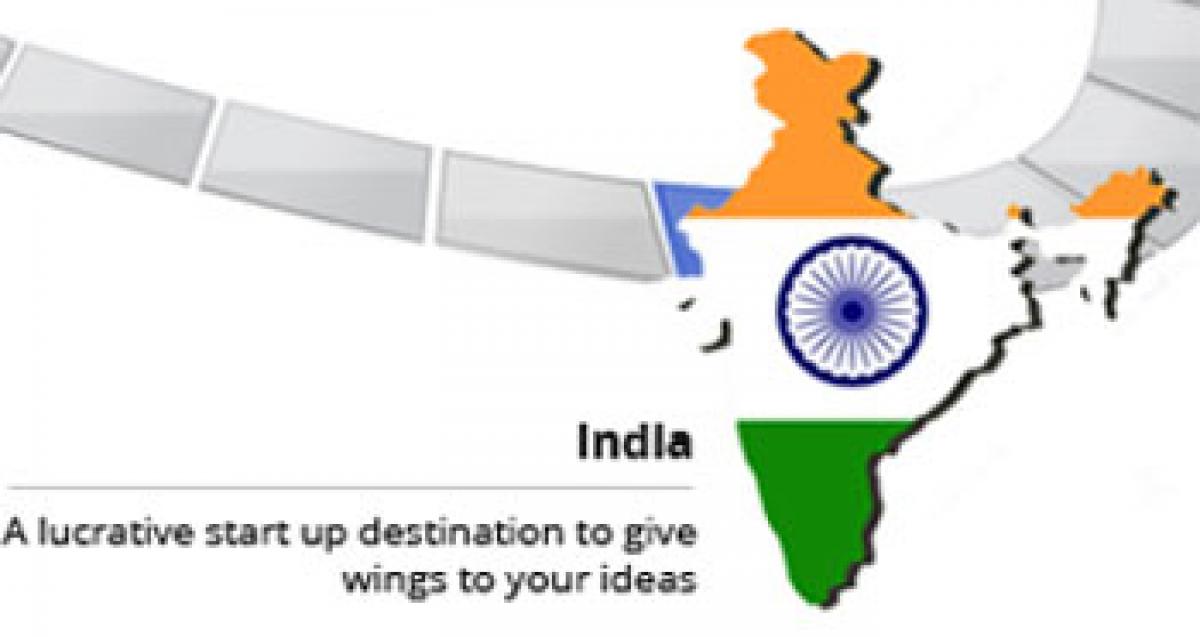Live
- K’taka: Police complaint lodged against petitioner in MUDA case
- Andhra college student jumps to death from hostel building after petty spat
- Bengal: ED investigating bank accounts of Bangladeshi citizens arrested in Hawala scam
- National Racing C'ship: Tijil Rao dominates in Formula LGB4 title race
- Hyderabad Comic Con: A Thrilling Celebration of Comics, Gaming, and Pop Culture
- Football: Trio leave Spain squad, Barrios gets call-up for Nations League clash with Swiss
- Dragon boat races during water festival in Cambodia ends with award ceremony
- Manipur bodies recovery: Widespread mob violence reported, curfew imposed, mobile internet suspended
- WPGT 2024: Hitaashee doubles lead to six shots in 14th Leg; Nayanika Sanga, Vidhatri Urs in pursuit
- Despite ideological differences, Cong has highest respect for Balasaheb Thackeray: Priyanka Gandhi
Just In

India\'s fledgling unicorns huddle together whispering \"unit economics\" as impatient investors stamp their feet. The vultures are circling, and a bloodbath is imminent. Or so the world would have us believe.
Ignore the gloom, story here is just starting
The dust has settled. The hedge funds have fled to the hills. Jeff Bezos and his tanks are parked on the lawn. Jack Ma looms over to the East.
India's fledgling unicorns huddle together whispering "unit economics" as impatient investors stamp their feet. The vultures are circling, and a bloodbath is imminent. Or so the world would have us believe.
What is amusing is that the research division of the same company that wrote down Flipkart's valuation by 27% released a report increasing their estimate for the size of India's ecommerce market by 2020 by 17%.
The idea that the revision in the valuation of one company by one investor encapsulates the problems of an entire market is a superficial and lazy conclusion.
Those uttering cries of doom are the same herd that came charging to the party in 2015 -the last in were the first out.
The funding slowdown has revealed as much about the Indian venture capital market as the companies they evaluate. It is a small world of IIT buddies and their gossiping, of egos and posturing, bluff and counter-bluff.
Where the fearful see chaos, the wise see opportunity - the market is full of increasingly attractive deals.
The Indian ecommerce story has barely concluded its first chapter. “Down rounds“ may be the talk of the town, but are red herrings as symptoms of a wider market malaise.
There are huge reserves of capital waiting to be deployed. Sequoia has just raised the largest ever Indian venture capital fund. And the scale of the opportunity in India continues to astound.
Matter of conjecture
Valuations are a matter of conjecture, but what is happening on the ground is indisputable. The seismic shift in consumer behaviour has not been witnessed anywhere in the world.
Established players - whether banks, insurers, retailers - hold such a tiny portion of their respective markets relative to the rest of the world that the opportunity for new businesses underpinned by technology is so much larger.
Per capita income is likely to double by 2025. There is no better place in the world for genuinely innovative entrepreneurs, and nowhere is the prize larger for the winners. The Indian dream is alive.
It is insulting to the ecosystem that the sector is characterised lazily as simply models that imitate Western businesses. Dig a little deeper and innovation exists everywhere. Execution in India is tougher than Silicon Valley (USA) or Roundabout (UK).
What concerns me is the over-reliance of the market on such a small number of investors. With traditional private equity reluctant to get involved, and offline players choosing to remain wilfully blind, Tiger, Naspers, SoftBank and Alibaba have run riot, waving magic wands and making princes and paupers of those they select and jettison.
There remains a concern that in the world of “bigger is better,“ inefficiencies are creeping into the market.
Time and again investors complain of "capital being disproportionately allocated" to a select player in a particular vertical.
Conversation is not around margins or the intricacies of the business model of the company in question, but simply "how much have they raised?"
Investors fear riding into battle against a well-capitalised competitor. To use marketplace terminology - the market is currently characterised by numerous eager sellers (supply), and very few buyers (demand), leading inevitably to the market functioning poorly.
My fear is that strong teams and products are potentially being neglected due to the perception of a "winner takes all" endgame.
In a sector where, broadly speaking, due to technology, the only barrier to entry is scale, market share is the only master, and as we have seen, companies will stop at nothing to attain it.
A competitor with noble intentions to create a sustainable business with a loyal customer base finds itself unloved by the powerful. The solution for the sector?
Bravery.
Bravery by investors to swim against the tide, to ask the tough questions, to think critically, not listen to their mates at the Cricket Club of India bar, but to block out the noise.
Bravery by entrepreneurs to recognise that world-leading businesses take time to create, that bigger isn't necessarily better, and to have faith in creative destruction.
Source: techgig.com

© 2024 Hyderabad Media House Limited/The Hans India. All rights reserved. Powered by hocalwire.com







